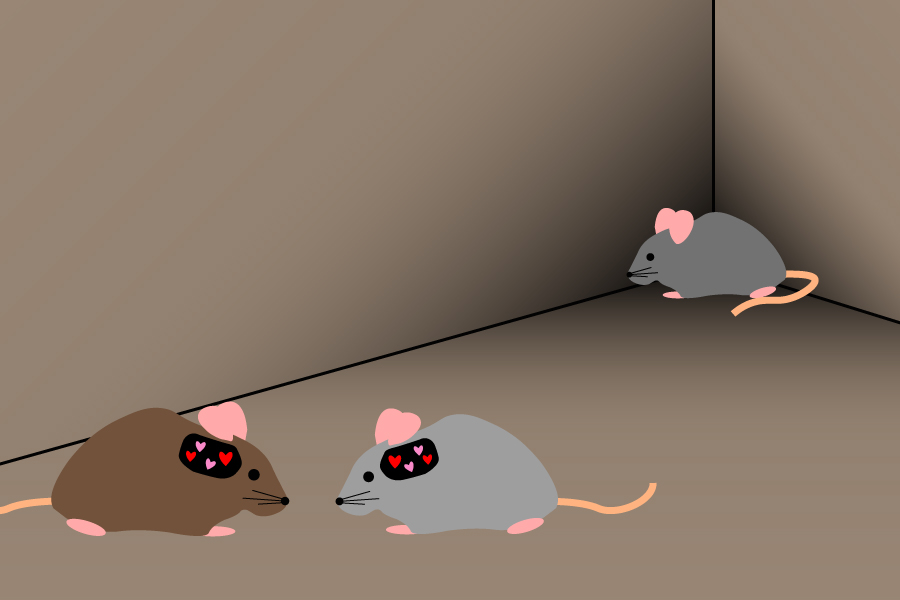
UC Davis researchers explore the effects of the hormone oxytocin on social interaction
Upon extensive research, UC Davis professor Brian Trainor and his team have concluded that, when blocking oxytocin receptors in female California mice that have had a negative social experience such as bullying, their social behavior remained normal. In female mice that did not have their oxytocin receptors blocked, they became anti-social. In other words, oxytocin amplified social experiences that were both positive and negative in female California mice.
“For this paper, we asked what happens if we block oxytocin receptors if we know that oxytocin cells are more active after bullying experiences,” Trainor said.
This research has been in the making for some time. Trainor and his team had another study published in the journal Biological Psychiatry which concluded that the oxytocin in female mice became more active after a negative experience like bullying.
This finding was vital to the second paper, also published in Biological Psychiatry, because it is a continuation of their findings in the first paper.
“I feel like our results are exciting because they suggest that this extended amygdala might be an important circuit in mediating anxiety-inducing or anti-social effects of oxytocin,” Trainor said. “It is possible that oxytocin could be working in different parts of the brain to either increase or decrease anxiety.”
Along with these exciting results, Trainor also mentioned that people are starting to move away from using terminology like the “love hormone” and are now looking into “social salience,” which describes oxytocin as more of an amplifier of social experiences.
“We use social defeat stress in order to study the effects of social stress in males and females,” said Natalia Duque-Wilckens, a postdoctoral researcher on Trainor’s team and one of the authors of the first paper. “This is based on a naturally occurring behavior: defense of territories. Remarkably, even though there is no physical aggression, the animal who gets kicked out of the territory develops symptoms comparable to depression in humans. One of the projects I’m working on is trying to suppress the expression of oxytocin in certain parts of the brain to assess how that affects social anxiety behavior.
Looking forward, both Duque and Trainor are thrilled because this research has opened up new doors into the sex-specific effects of stress.
Trainor and his team’s research created opportunities for various people. It’s clear that the innovative research that Trainor and his team are conducting is inspiring to professors to undergraduate students. One of the people who have benefitted is Sae Yokoyama, a fourth-year biological science majors with a minor in Japanese who has been doing research since her first year.
“Early on, I helped with stereotactic surgeries with the mice, behavior testing, and taking pictures that were later used to collect quantitative data” Sae said.
Sae plans to continue to assist Duque in her future studies.
One thing is for certain: these findings on oxytocin are only the beginning for Trainor and his team.
“I don’t think I’m done asking these questions” Sae said.
Written by: David Soltero — science@theaggie.org


